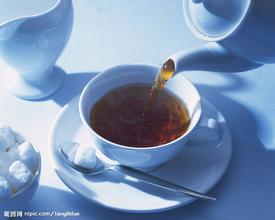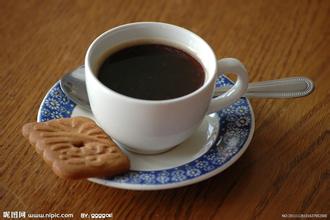When did coffee become popular?
The cultivation and production of coffee in the 17th century has always been monopolized by Arabs. At that time, it was mainly used in medicine and religion, and doctors and monks admitted that coffee had the effects of refreshing, awakening, strengthening the stomach, strengthening the body and stopping bleeding. The use of coffee was documented at the beginning of the 15th century and was integrated into religious ceremonies during this period. At the same time, it also appeared in the folk as a daily drink. Because drinking was strictly forbidden in Islam, coffee became a very important social drink at that time.
In 1570, when the Turkish army besieged Vienna and failed to retreat, a bag of black seeds was found in the Turkish army's barracks. No one knew what it was. A Polish man who had lived in Turkey took the bag of coffee and opened his first coffee shop in Vienna. At the end of the 16th century, coffee began to spread into Europe on a large scale through Italy in the name of "Islamic wine". It is said that at that time, some Catholics thought coffee was a "devil's drink" and encouraged Pope Clemon VIII to ban it, but after the pope tasted it, he thought it was drinkable and blessed it, so coffee became more and more popular in Europe.
At first, coffee was expensive in Europe. Only aristocrats could drink coffee, and coffee was even called "black gold". Until 1690, a Dutch captain sailed to Yemen and got some coffee seedlings, which were successfully planted in Indonesia. In 1727, the wife of a diplomat in Dutch Guiana gave some coffee seeds to a Spaniard in Brazil, where he planted them with good results. The climate in Brazil is very suitable for coffee growth, and coffee has spread rapidly in South America since then. Coffee, which has fallen in price as a result of mass production, has become an important drink for Europeans. The word coffee comes from the Greek word "Kaweh", which means "strength and enthusiasm". Coffee tree is a small evergreen tree of Rubiaceae. Coffee for daily consumption is made from coffee beans combined with various cooking utensils, and coffee beans refer to the nuts in the fruit of coffee trees, which are then roasted by appropriate roasting methods. All over the world, people like drinking coffee more and more. The "coffee culture" that follows is full of every moment of life. No matter at home, in the office, or on various social occasions, people are tasting coffee, which is gradually associated with fashion and modern life.
Coffee trees are native to the highlands of southwestern Ethiopia in Africa. It is said that more than a thousand years ago, a shepherd found that the sheep had eaten a kind of plant, became very excited and lively, and then discovered coffee. It is also said that a coffee forest was accidentally destroyed by a wildfire, and the smell of barbecue coffee attracted the attention of surrounding residents.
Local aborigines often grind the fruit of the coffee tree and knead it with animal fat to make many ball-shaped balls. These indigenous tribes use these coffee balls as precious food for soldiers who are about to go out to battle. It was not until around the 11th century that people began to use boiled coffee as a drink. In the 13th century, Ethiopian troops invaded Yemen and brought coffee to the Arab world. Because the Islamic doctrine forbids people to drink alcohol, some religious people think that this kind of drink stimulates the nerves and violates the doctrine. Coffee shops were banned and closed for a time, but the Egyptian sultan thought that coffee was not against the doctrine, so the ban was lifted. Coffee drinks quickly became popular in the Arab region. The word coffee Coffee, which comes from the Arabic Qahwa, which means "plant drink", later spread to Turkey and became the source of the word in European languages. The method of growing and making coffee has been constantly improved and perfected by the Arabs.

Important Notice :
前街咖啡 FrontStreet Coffee has moved to new addredd:
FrontStreet Coffee Address: 315,Donghua East Road,GuangZhou
Tel:020 38364473
- Prev

Introduction to the Development Prospect of Coffee Industry in China-Analysis of Coffee Industry
In April, Yunnan Coffee Industry Association formed a coffee drought research group to investigate the situation of coffee disaster. According to the on-the-spot investigation, as of late April, due to the serious water shortage, nearly 240000 mu of the existing coffee planting area of 400000 mu in Yunnan was affected, and the harvest was as high as 60, 000 mu. The drought has the greatest impact on coffee seedlings planted within three years, with the mortality rate of newly planted coffee seedlings as high as 40% in 2009. Near
- Next

Barista's "Olympics"-- WBC Barista Competition
The official competition is only the core link of the competition, but around the event, elites from the Chinese coffee industry will gather in Xiamen to interact on coffee professionalism, management, education and promotion, which will provide a reference for the improvement of the overall level of coffee in Xiamen and draw lessons from the CBC Xiamen Division Competition as the constituent unit of this coffee life set, which will be held at the same time at the coffee life set.
Related
- Three tips for adjusting espresso on rainy days! Quickly find the right water temperature, powder, and grinding ratio for espresso!
- How much hot water does it take to brew hanging ear coffee? How does it taste best? Can hot water from the water dispenser be used to make ear drip coffee?
- What grade does Jamaica Blue Mountain No. 1 coffee belong to and how to drink it better? What is the highest grade of Blue Mountain coffee for coffee aristocrats?
- What are the flavor characteristics of the world-famous coffee Blue Mountain No. 1 Golden Mantelin? What are the characteristics of deep-roasted bitter coffee?
- Can I make coffee a second time in an Italian hand-brewed mocha pot? Why can't coffee be brewed several times like tea leaves?
- Hand-brewed coffee flows with a knife and a tornado. How to brew it? What is the proportion of grinding water and water temperature divided into?
- What is the difference between Indonesian Sumatra Mantinin coffee and gold Mantinin? How to distinguish between real and fake golden Mantelin coffee?
- What does bypass mean in coffee? Why can hand-brewed coffee and water make it better?
- Unexpected! Ruixing Telunsu lattes use a smoothie machine to foam milk?!
- % Arabia's first store in Henan opens into the village?! Netizen: Thought it was P's

